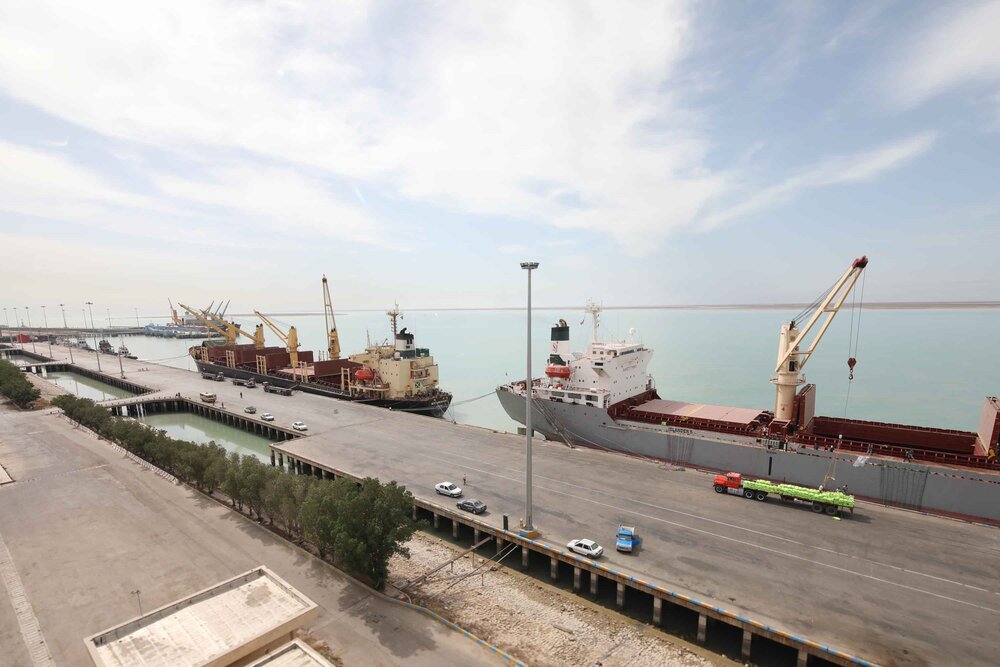Loading, unloading of goods up 20% at Imam Khomeini port

TEHRAN- Loading and unloading of goods rose 20 percent at Imam Khomeini port, in the southwest of Iran, during the first five months of the current Iranian calendar year (March 21-August 22), as compared to the same period of time in the past year.
As reported by the Ports and Maritime Organization (PMO), more than 18 million tons of commodities was loaded and unloaded at this port, of which 11.296 million tons was non-oil and over seven million tons was oil products.
Imam Khomeini Port, with its advanced and powerful equipment and an annual capacity of 50 million tons, plays an important role in the supply chain and food security of the country.
As previously reported by the PMO, loading and unloading of goods in the ports of Iran rose 14 percent during the first five months of the current Iranian calendar year, as compared to the same period of the previous year.
According to PMO’s Ports Affairs Director Ravanbakhsh Behzadian, loading and unloading of goods at the country’s commercial ports reached 58.99 million tons in the mentioned period, while the figure stood at 51.73 million tons in the past year’s same five months.
During the said five months, unloading and loading operations in the container sector reached 8.66 million tons, for dry bulk the figure stood at 17.77 million tons, in liquid bulk the figure was 1.94 million tons, while for general cargo (general and miscellaneous goods) it was 8.37 million tons and for the petroleum products loading and unloading volume amounted to 22.24 million tons, Behzadian said.
He noted that the loading and unloading operations in the dry bulk sector grew by six percent in the mentioned period compared to the last year’s same time span, while in the liquid bulk sector the figure increased by 47.9 percent, in the general cargo sector the growth was 19.4 Percent and the petroleum sector also experienced a growth of 22.6 percent compared to the same period last year.
While Iran is combating the U.S. unilateral sanctions on its economy, the country’s ports as the major gates of exports and imports play some significant role in this battle. This role makes all-out support to ports and more development of them serious and vital.
Such necessity has led the government to define projects for more development of the ports and also take some measures to encourage investment making in ports, in addition, to facilitate loading and unloading of goods, especially basic commodities, there.
It is worth mentioning that PMO has defined a high number of projects to develop and improve the country’s ports, as the country aims to double the capacity of its ports in a course of five years.
MA/MA
